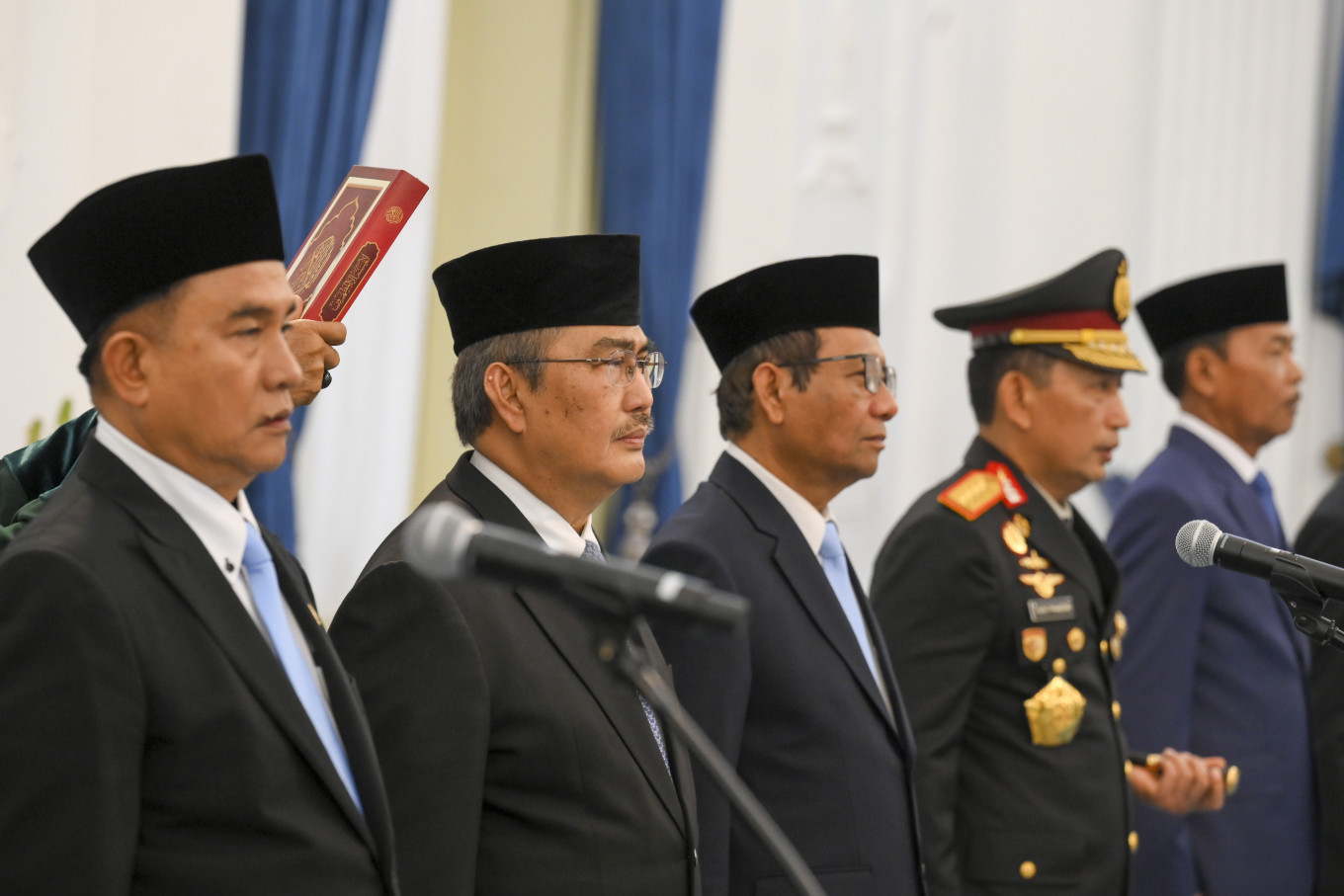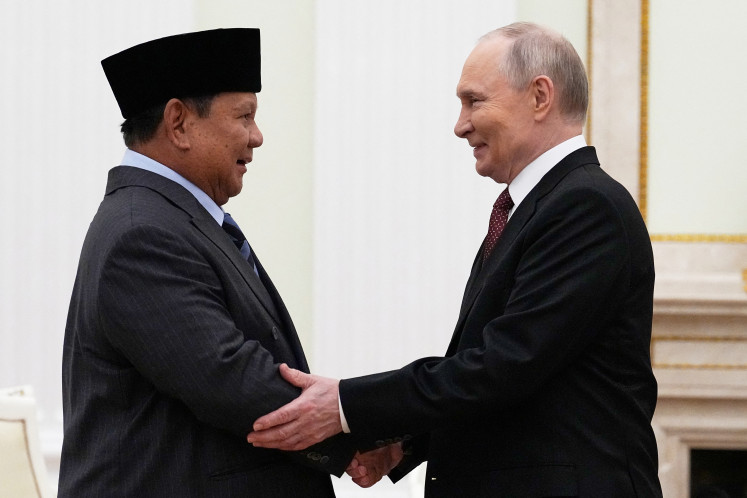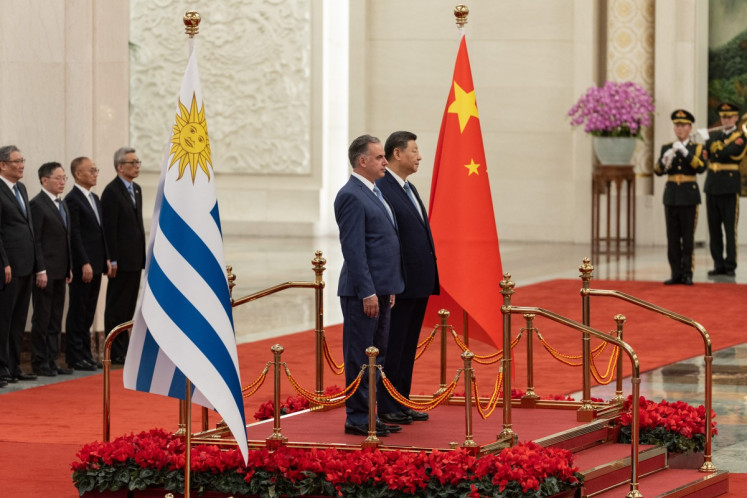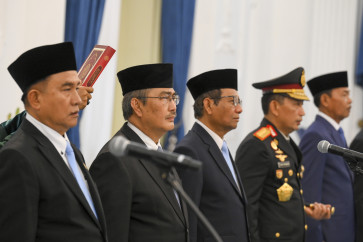Popular Reads
Top Results
Can't find what you're looking for?
View all search resultsPopular Reads
Top Results
Can't find what you're looking for?
View all search resultsPolice reform: Turning resistance into a path for transformation
The real transformation of the National Police lies in nurturing a professional culture built on accountability, empathy and trust.
Change text size
Gift Premium Articles
to Anyone
 Former Constitutional Court chief justice Jimly Asshiddiqie (second left), former coordinating political, legal and security affairs minister Mahfud MD (center), Coordinating Law, Human Rights, Immigration and Correctional Services Minister Yusril Ihza Mahendra (left), National Police chief Gen. Listyo Sigit Prabowo (second right) and former National Police chief Idham Aziz attend the inauguration of members of the Police Reform Acceleration Commission on Friday at the Merdeka Palace in Jakarta. (Antara/Hafidz Mubarak A)
Former Constitutional Court chief justice Jimly Asshiddiqie (second left), former coordinating political, legal and security affairs minister Mahfud MD (center), Coordinating Law, Human Rights, Immigration and Correctional Services Minister Yusril Ihza Mahendra (left), National Police chief Gen. Listyo Sigit Prabowo (second right) and former National Police chief Idham Aziz attend the inauguration of members of the Police Reform Acceleration Commission on Friday at the Merdeka Palace in Jakarta. (Antara/Hafidz Mubarak A)
W
hen President Prabowo Subianto formed the Police Reform Acceleration Commission and inaugurated its nine members last week, public optimism loomed that the National Police might finally achieve the kind of reform long envisioned since its separation from the Indonesian Military (TNI) in 1999.
This optimism, however, comes with a familiar sense of déjà vu. Over the past two decades, multiple reform agendas have been launched, each with the promise of reshaping the police force into a professional, civilian institution. Many of these reforms achieved partial progress, yet their broader impact often faded with time.
The challenge today is not whether reform is needed - it clearly is - but how to ensure that this new phase of reform is sustained, credible and fully owned by the National Police itself.
Indonesia’s journey toward police reform has always reflected a larger national transition - from authority-based governance to a service-oriented democracy. The 1999 separation from the TNI was a milestone in that journey, but separation alone was never meant to be the end goal. The real transformation lies in nurturing a professional culture built on accountability, empathy and trust.
In the past, programs like Polmas (community policing) were designed to embody these principles by fostering closer partnerships between police officers and the communities they serve. However, their impact remained limited.
This was not because the concept was flawed, but because the reform process underestimated how strongly institutional culture shapes behavior. Officers trained under hierarchical command structures found it difficult to adjust to the more consultative approach that Polmas required.
An institutional recognition of this dynamic is crucial - not as a critique of officers, but as an insight into how change works inside large organizations. It is worth noting that, resistance is not a sign of failure; it is a natural stage in the process of adaptation.


















